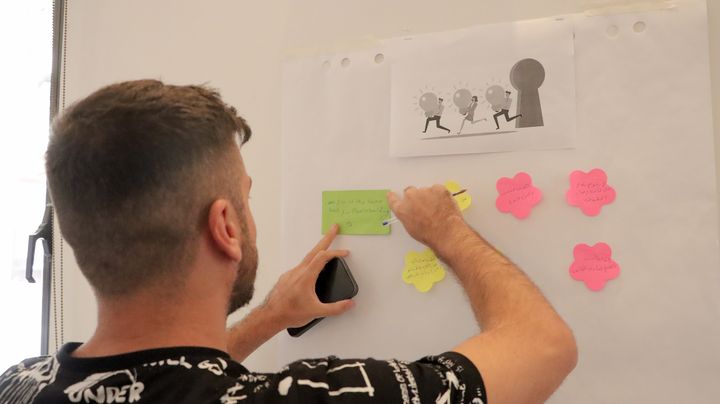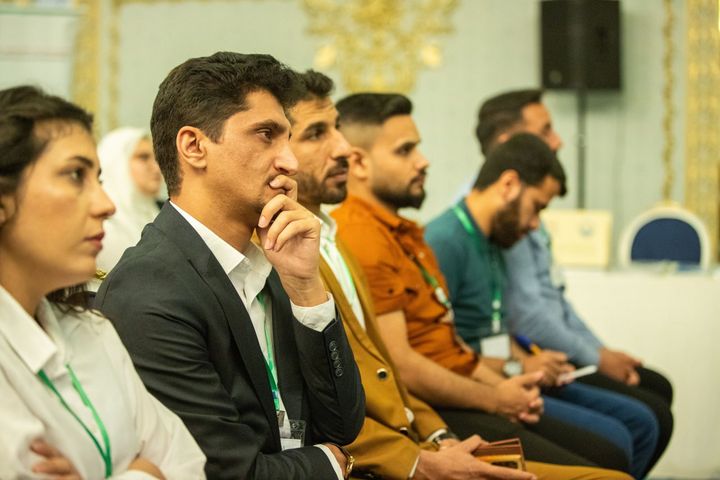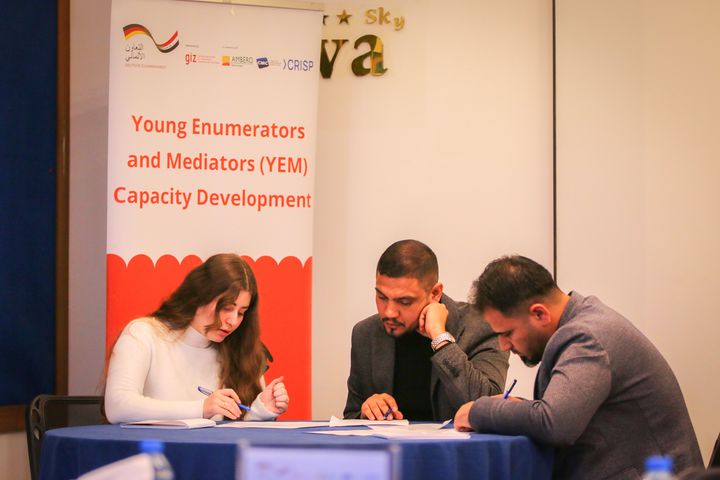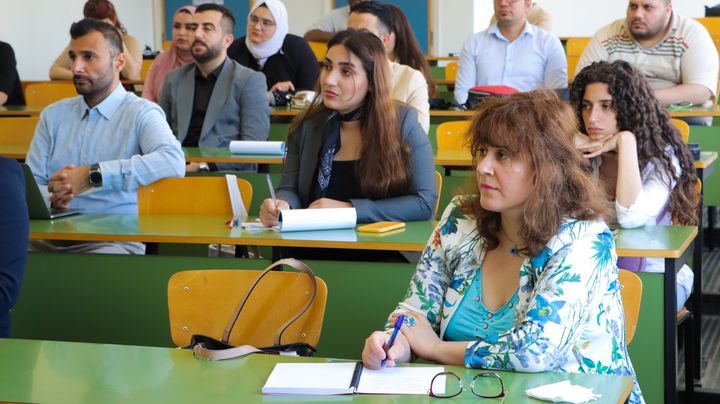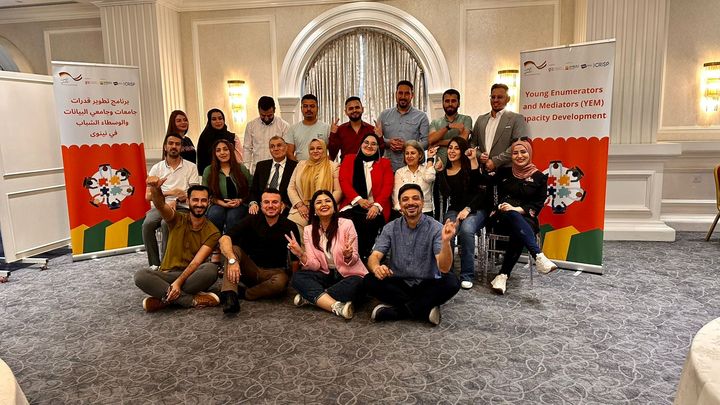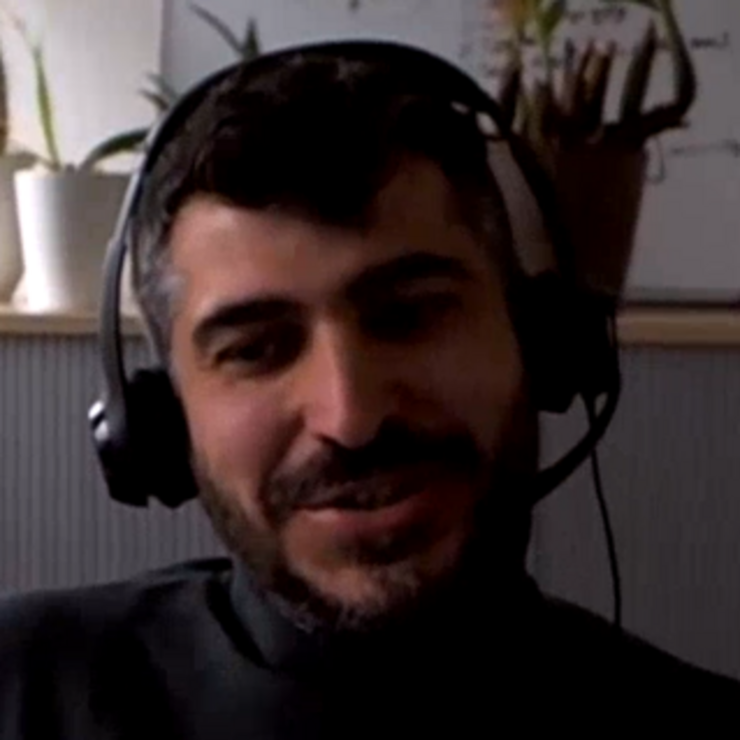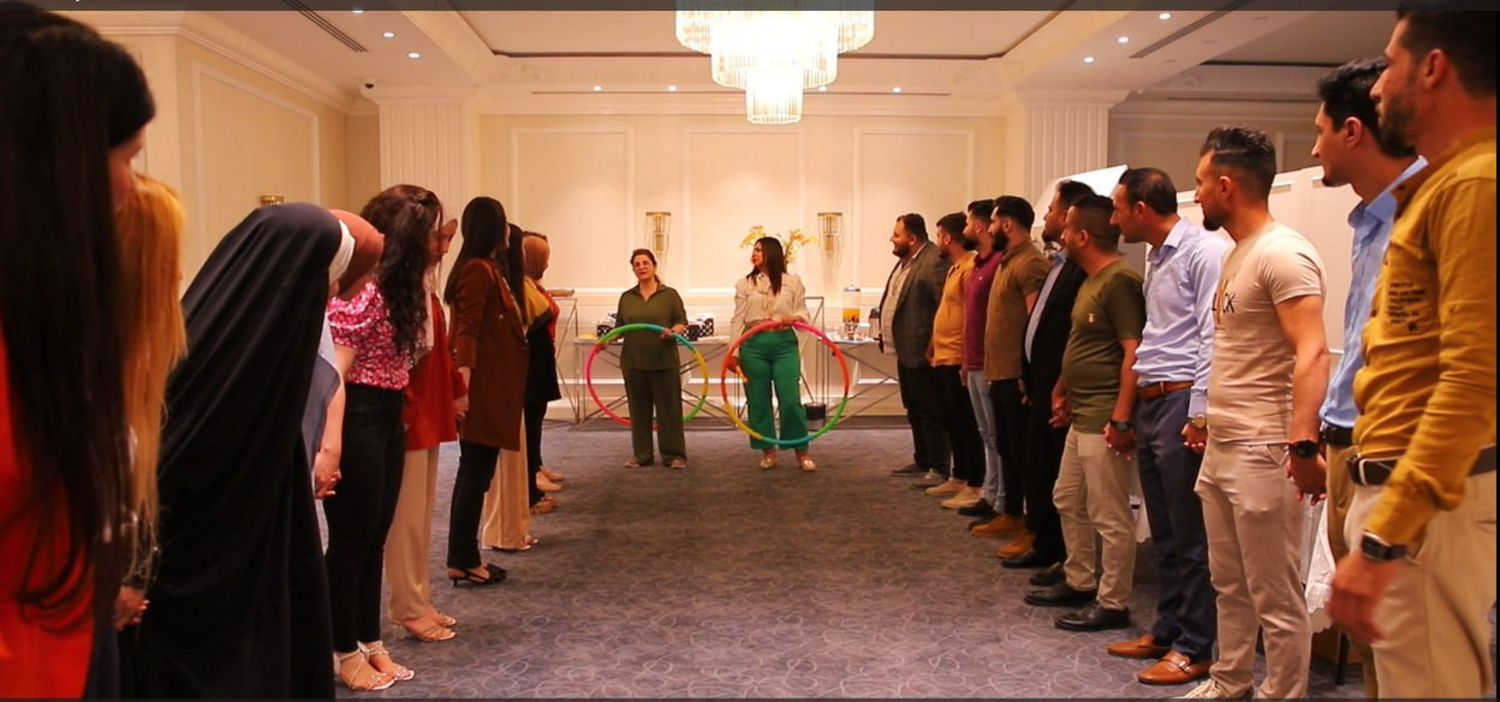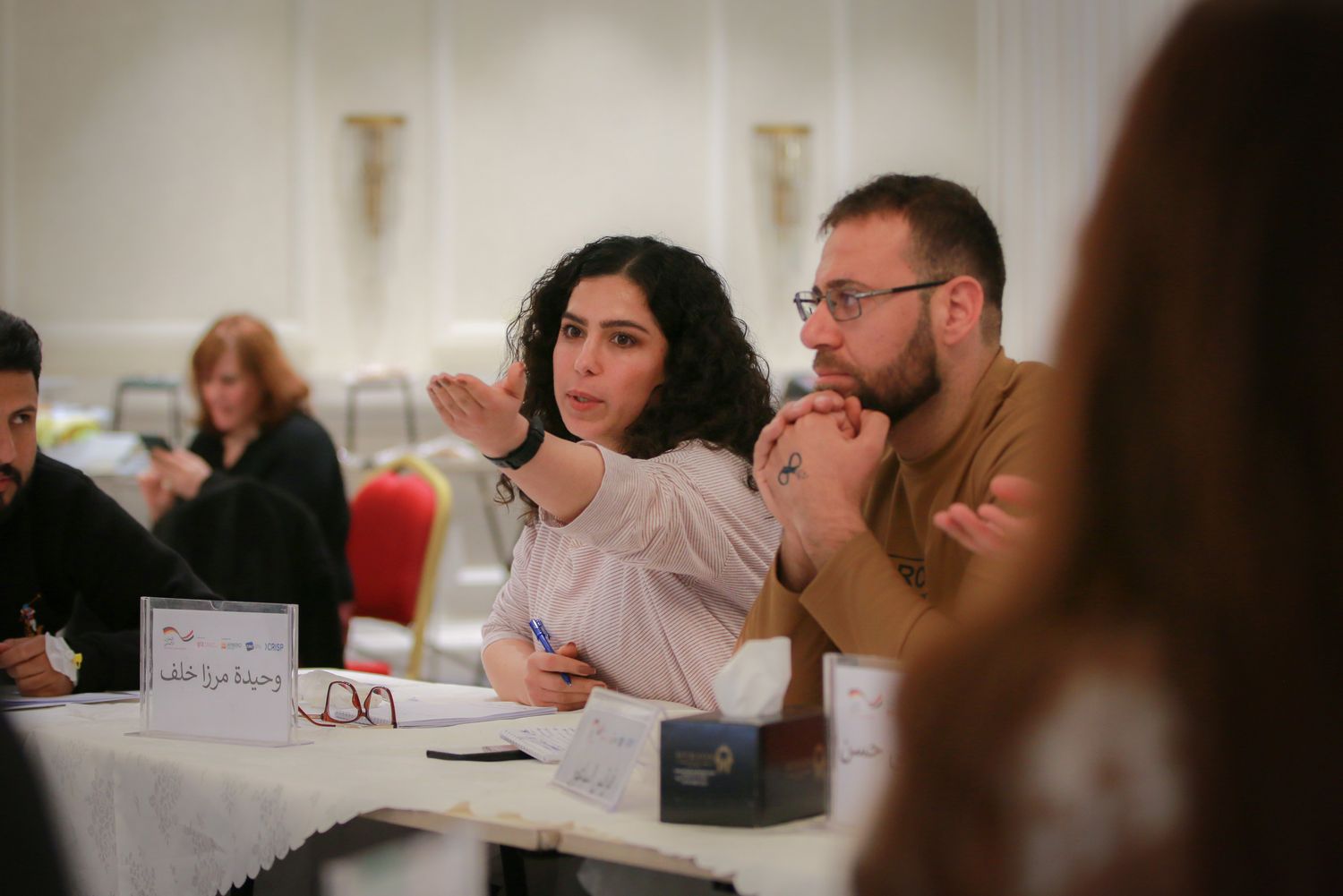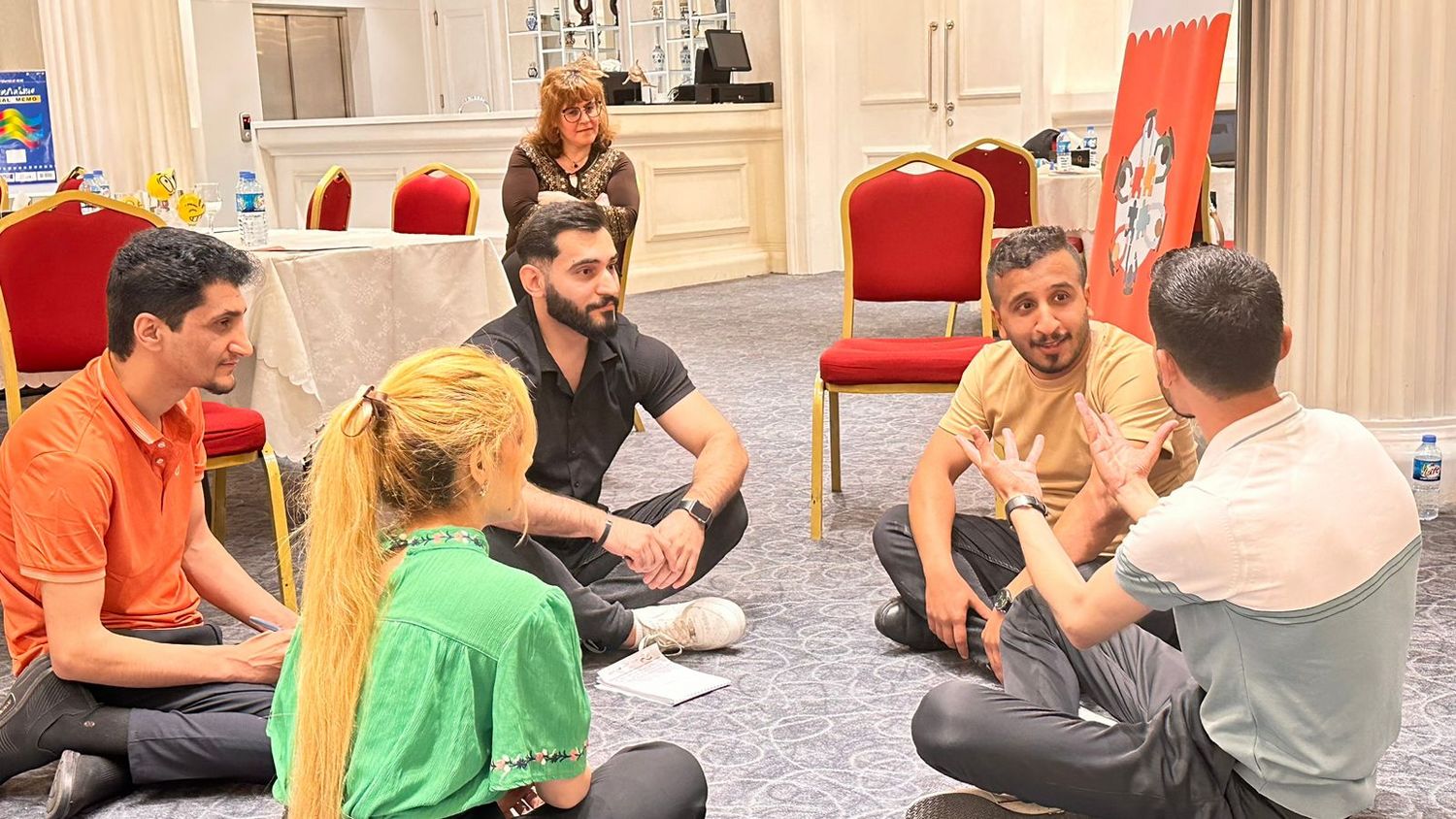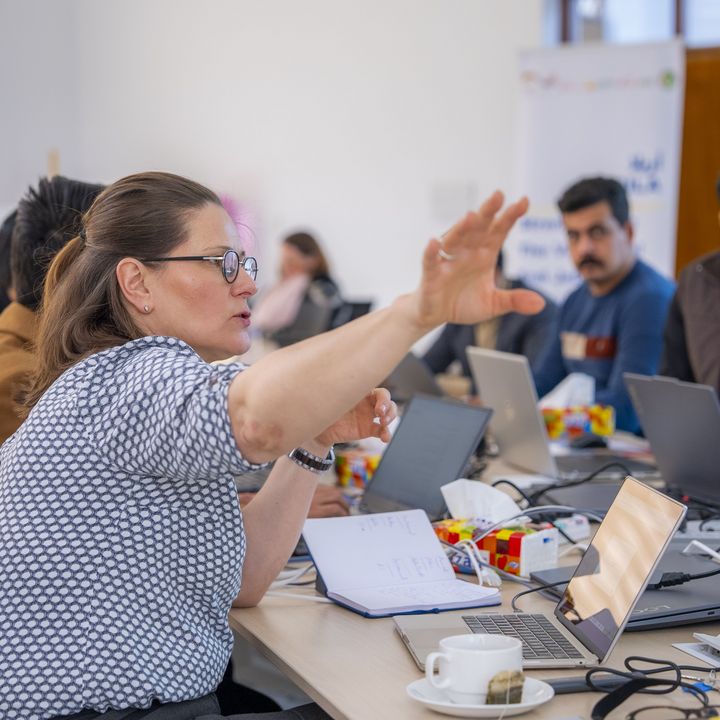The YEM project is being implemented within the framework of the GIZ project "Strengthening resilience in dealing with crises and conflicts in Ninewa, Iraq (SRN)". Emre Bilgin, the responsible project manager, shares insights on the successful training of 33 young mediators who are now equipped to address and resolve local disputes effectively.
Empowering Youth: Training Future Mediators in Iraq
| Insights
Amidst the challenges of post Islamic State (IS) conflicts in Ninewa, Dorsch Impact implemented the Young Enumerators and Mediators (YEM) project - an initiative to promote peace and stability.
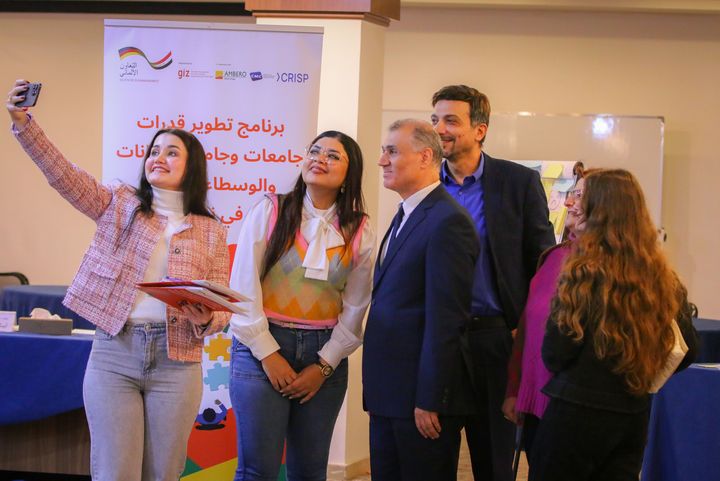
Youth play a pivotal role in efforts to achieve peace and stabilisation in Iraq. As those most affected by ongoing conflicts, young people have the potential to be key agents of change - provided with the necessary support and incentives. This is precisely where our YEM project comes in: 200 young individuals from Ninewa were trained in data collection, conflict analysis, management, and mediation. As a result they are now better prepared to reduce local tensions and contribute to a peaceful coexistence.
We connected our newly trained mediators with experienced individuals to enhance their practical experience and prevent any potential harm from inexperienced interventions.
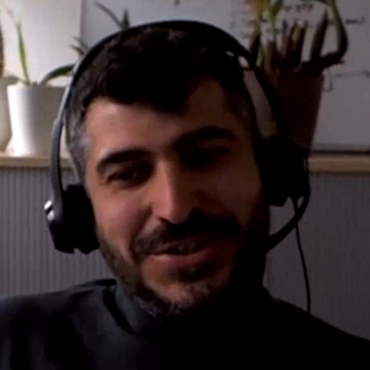
Project Design and Implementation
Emre Bilgin, the project manager at Dorsch Impact, outlined the structure of the YEM project during an interview. “The main scope of this project was to train young people and involve them in local conflicts, as well as be part of the solutions,” Bilgin explained. The project was divided into four work packages:
- Selection and Initial Training: Out of over 3,000 applicants, 200 young people were selected and trained in data collection on peace, conflict, and social cohesion.
- Advanced Conflict Analysis: The top 80 trainees from the initial group received further training in conflict analysis and management.
- Mediation Training: From the 80, the best 33 were trained to become certified mediators capable of resolving local disputes.
- Community of Practice (CoP) Platform: A platform was developed for trainees to present their activities, share resources, and connect with potential employers.
Challenges and Adaptations
Implementing the YEM project had its challenges. Bilgin highlighted the difficulties in selecting participants due to strict criteria: “GIZ required an equal distribution of participants across five districts, Tel Afar, Tal Kayf, Hamdania, Mosul, and Sinjar, and an equal number of male and female applicants aged between 25 and 40,” he noted. To address these challenges, the team developed an extensive outreach campaign, ultimately selecting 200 participants who met all the criteria.
Another significant challenge was gaining acceptance from traditional tribal leaders and elders, who were initially hesitant to authorise young people and women in peace processes.
To solve these issues, the project incorporated shadowing and alignment with experienced mediators, ensuring that young mediators could work alongside seasoned professionals without overstepping their capabilities. “We connected our newly trained mediators with experienced individuals to enhance their practical experience and prevent any potential harm from inexperienced interventions,” Bilgin explained.
Training Phases and Learning Journey
The YEM project's training journey was structured to build comprehensive skills:
Phase 1: A three-day theoretical session followed by ten days of fieldwork focused on data collection, enumeration, and social research.
- Participants: All 200 selected trainees
Phase 2: Ten days of theoretical training and fourteen days of fieldwork centered on conflict analysis.
- Participants: Top 80 trainees from Phase 1
Phase 3: Ten days dedicated to mediation techniques, providing a robust framework for practical application.
- Participants: Top 33 trainees from Phase 2
The training ended in a five-day study trip to Lebanon, where trainees engaged in simulations and interacted with conflict resolution experts. “The study trip to Lebanon was particularly significant as it provided a diverse and immersive environment for the trainees to practice their skills,” Bilgin remarked. This hands-on experience allowed participants to apply their knowledge in real-life scenarios.
Impact
The methodology we developed is applicable to other regions and countries facing similar conflicts. We have an English and Arabic curriculum ready, making it easier to implement in countries like Jordan, Lebanon, Egypt, and Syria.
Personal Insights and Team Management
Bilgin shared his personal experiences managing the project, highlighting the importance of team dynamics and conflict resolution within the project team itself. “Managing a diverse team from different cultural backgrounds in a challenging environment like Iraq taught me valuable lessons in team and time management,” he reflected.
He also emphasised the integration of his expertise in international security, terrorism, peace and conflict studies, and data science into the project. “We developed a platform to collect applications and evaluate them, combining data science with peace and conflict studies. This integration was directly relevant to the project, enhancing our ability to analyse peace data effectively,” Bilgin explained.
Sustainability for Future Projects
Looking ahead, Bilgin is optimistic about the project's replicability. “The methodology we developed is applicable to other regions and countries facing similar conflicts. We have an English and Arabic curriculum ready, making it easier to implement in countries like Jordan, Lebanon, Egypt, and Syria,” he stated. While there are plans to extend the project, Bilgin noted that future implementation depends on funding and donor support.
Share
Topics
Companies
More Images
